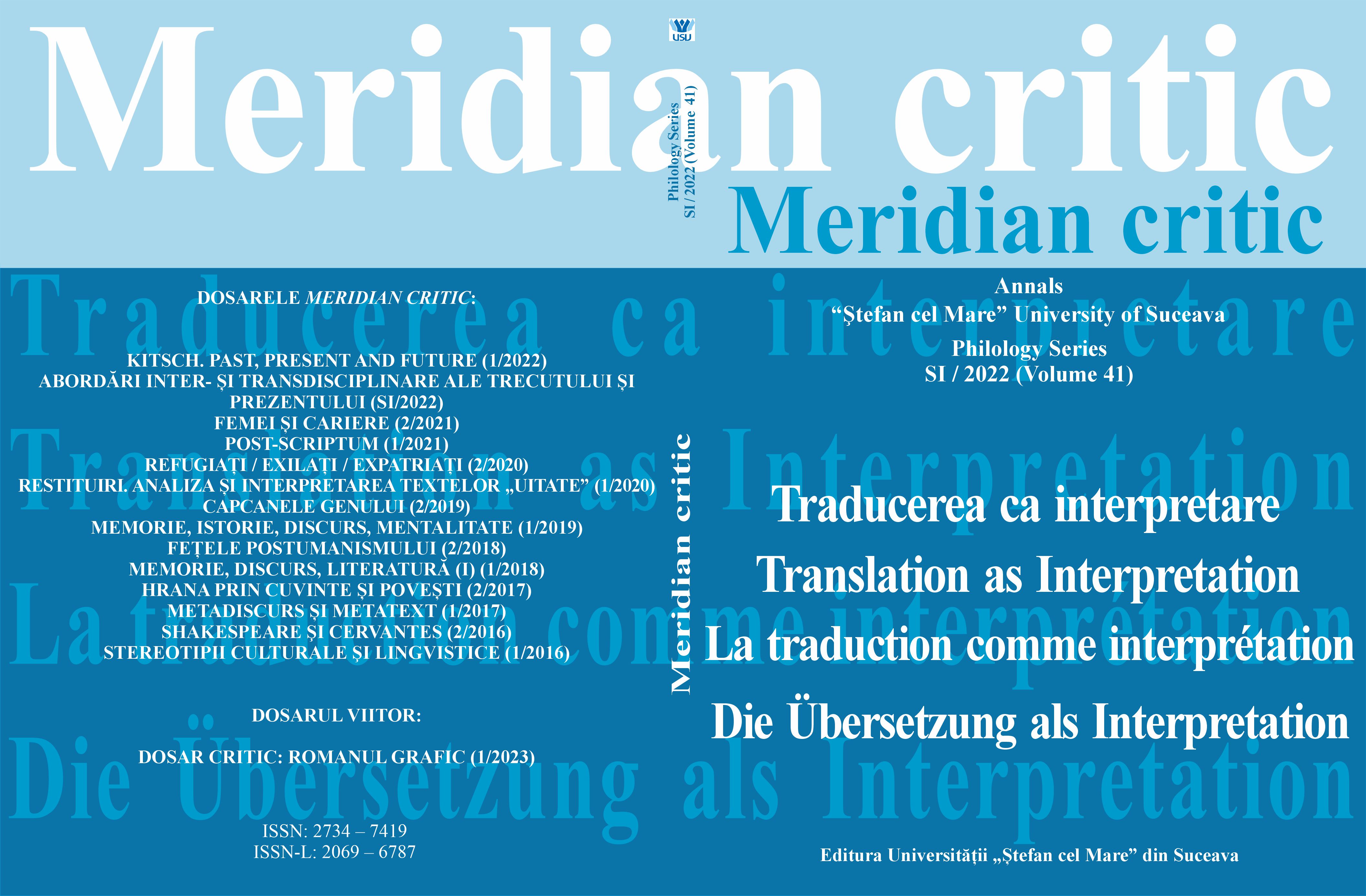Oscilarea între iugo-nostalgie şi recuperarea identităţii în romanele Dubravkăi Ugrešić
The Oscillation between Nostalgia and Recovery of Identity in Dubravka Ugrešić’s Novels
Author(s): Margareta-Iasmina BotSubject(s): Language and Literature Studies, Studies of Literature, Novel
Published by: UNIVERSITATEA »ȘTEFAN CEL MARE« SUCEAVA
Keywords: time; space; yugo-nostalgy; identity; exile;
Summary/Abstract: The Croatian writer Dubravka Ugrešić portrays in both her novels, ”The Ministry of Pain” and ”The Museum on Unconditional Surrender”, character prototypes who lose their identity once they experience life in exile. They struggle to recover the lost identity by going back into the past where they can find the memories which are related to their homeland. The exiles undergo a process which is being influenced by yugo-nostalgy, the longing for a territory which does not exist anymore, Yugoslavia, and by the events that they have to deal with in the present, because an outlaw is „în același timp aici și acolo, nici aici, nici acolo, prezent și absent, de două ori prezent și de două ori absent”1. (Jankélévitch 1998: 253). The exiles are physically absent from their homeland, but mentally they are more present than ever, because their attention is focused upon reclaiming the space they have left behind. Regarding the connection between them and the adoptive country, we can say that the exiles are physically present, but mentally they are fervently looking for their lost identity and for that place called home, which seems to be farther and farther away with each day that passes by. Due to their need to get back at least a tiny part from their homeland, the exiles live in a “third space” (Rutherford 1990: 211). This concept refers to a hybrid dimension in which are combined elements from the spaces in which the characters have lived. Nostalgy is an essential theme that dominates both novels, The Ministry of Pain and The Museum of Unconditional Surrender, because it has got the role to illustrate two symbolic concepts: time of nostalgy and space of nostalgy. Leaving their homeland behind with the intention of saving in their memory a specific time and specific place, which are associated to Yugoslavia, marks the compromise which leads to yugo-nostalgy. As time goes by, the exiles realize that between them there is a conexion, because they try to build „imaginary homelands” (Rushdie 2008: 18), with the help of the memories from the period during which they have lived in Yugoslavia. In The Ministry of Pain, the characters build a mental homeland, which they perceive it as a tee that has the power to give them back at least a tiny part from the balance they lost when they abandoned Yugoslavia. Through the memories they manage to collect in the raffia bag which has got red, white and blue stripes, the same colours which could be found on the Yugoslavian flag, the exiles build a fragile imaginary homeland. In The Museum of Unconditional Surrender, we can easily perceive the writerʼs interest for objects and photographs of specific moments which are related to their native country, that can establish the connection with the past, because of their endurance over time. Another specific theme that appears in both novels is the exilesʼ identity, which becomes uncertain in the moment in which they get in contact with an unknown territory.
Journal: Meridian critic
- Issue Year: XLI/2022
- Issue No: SI
- Page Range: 89-94
- Page Count: 6
- Language: Romanian

